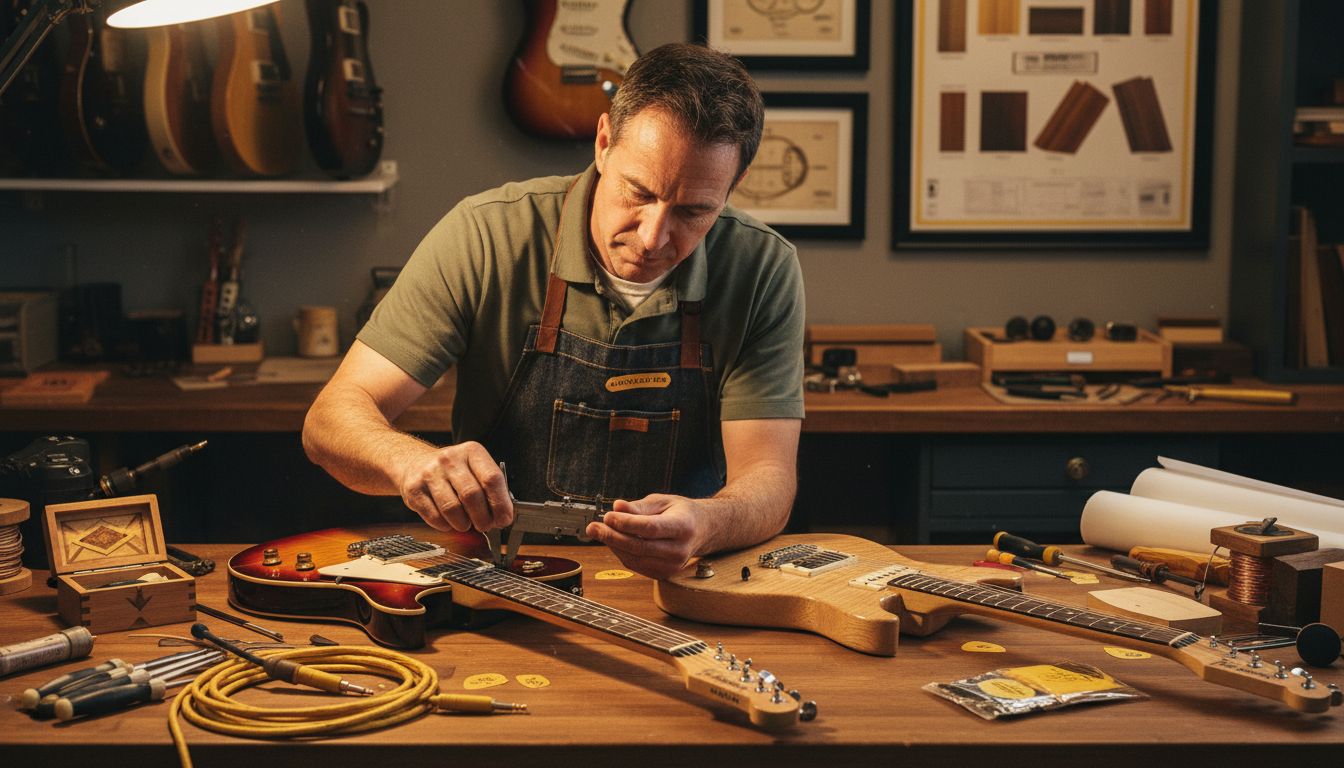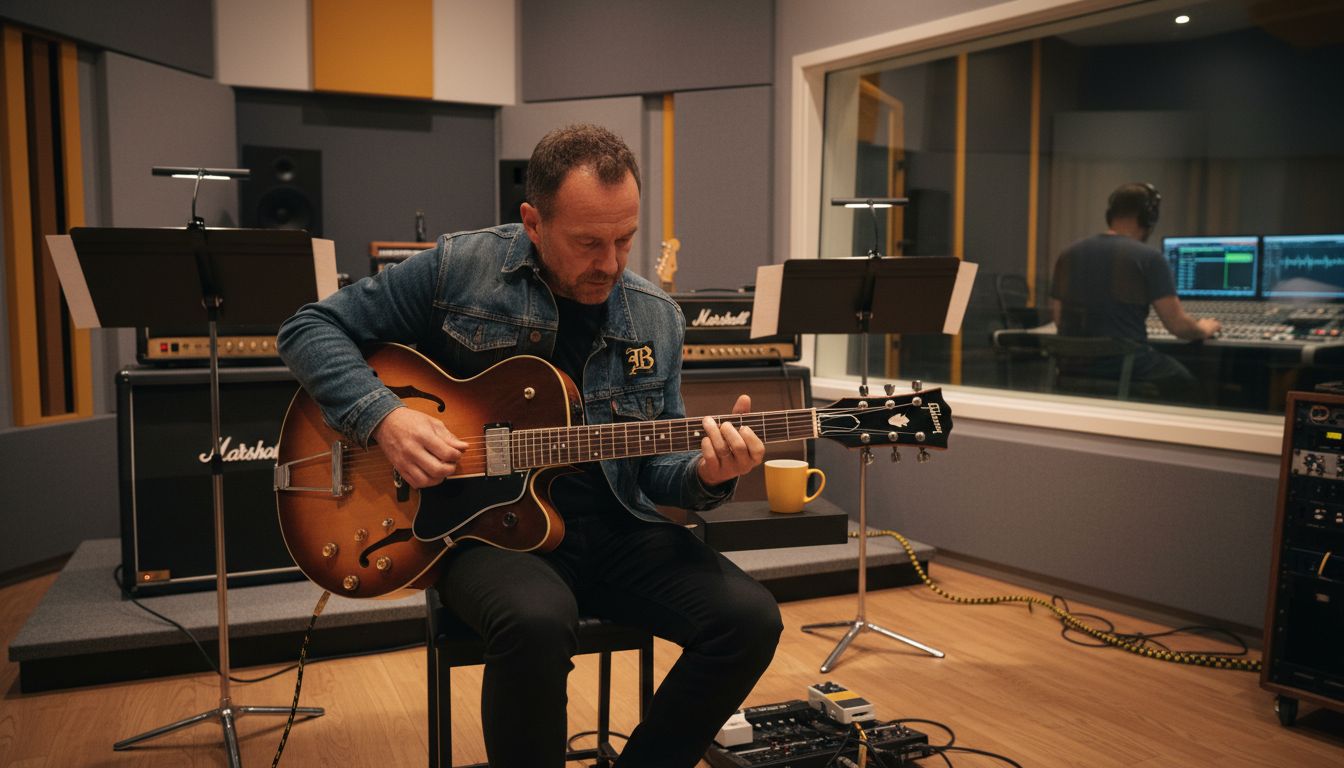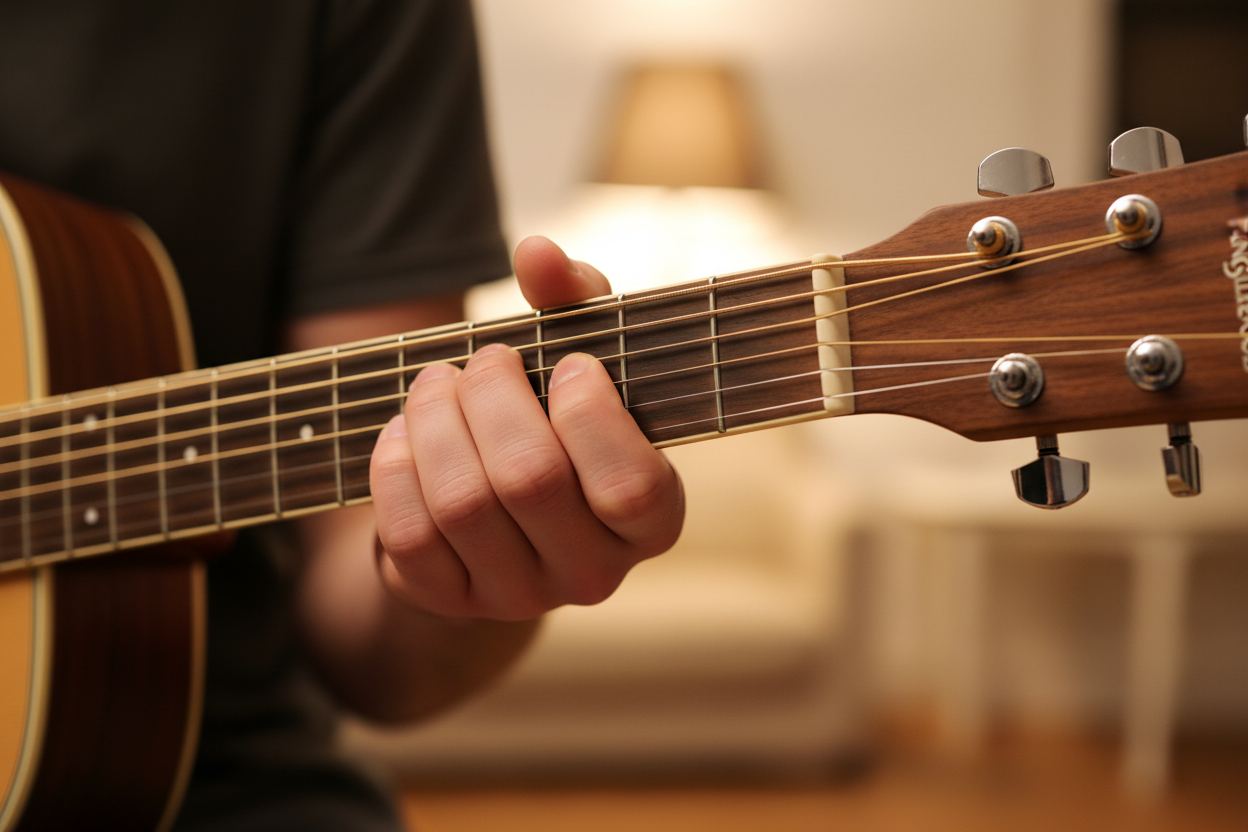As a guitarist, one important thing to consider is the tone of the guitar that you want to achieve. Different guitars can produce a variety of tones, depending on the type of wood used, the size and shape of the body, and the quality of strings used.
Many factors can affect the tone of your guitar, and it can be tough to figure out what the perfect style is for your instrument. For instance, you'll likely want a heavier, distorted sound while playing metal music. On the other hand, you'll prefer a clearer, brighter sound when performing acoustic music.
Regardless, here's an understanding of what the perfect tone is for your guitar:
1) Intonate Your Instrument
There are a few ways to intonate your guitar, but first and foremost, you will need an electronic tuner. However, you can also do it by ear. This is a process of adjusting the length of the strings so that they produce the correct pitch when plucked.
The best way to find a reference note is to use a piano or another guitar in tune. Once your guitar is properly intonated, it will be much easier to create the perfect tone. If your guitar is not properly intonated, it will sound out of tune no matter how well you tune it.
2) Organise Your Pedal Board
Now that your guitar is in tune, it's time to start thinking about your pedal board. A board on which you may set your guitar pedals is called a pedal board. This makes it simpler to maintain your pedal organisation and keep them from becoming twisted. The last thing you want is a bunch of tangled cables.
Not only will this make it difficult to find the right pedal, but it will also affect the quality of your sound. Once you have your pedal board set up, you can start thinking about which pedals you want to use. If you're unsure which pedals to get, you can always ask your local guitar shop for recommendations.
3) Change and Know Your Strings
No matter how good your guitar is, it will sound terrible if your strings are out of tune. Playing with old strings will affect the quality of your sound, so it's important to change them every month and keep them fresh. If you play often, you might even need to do this more frequently.
Don't know how to change them? This is a simple process, but it's something that every guitarist should know how to do. Otherwise, you'll be stuck waiting for a guitar technician whenever your strings need to be changed.
4) Utilise Quality Cables
Cable quality is something that a lot of guitarists overlook, but it's actually very important. Cables are just as important as strings regarding the quality of your sound. It can be a real pain if you're using cheap cables as you will get a lot of interference in your sound.
Unfortunately, cheap cables are more likely to pick up interference from other electronic devices. If you spend money on high-quality wires, your sound will improve significantly. They don't have to be expensive as long as they are of good quality.
Conclusion
In conclusion, what one person may deem the "perfect" tone may not be perceived similarly by another. Don't be scared to experiment; test out several settings and decide which suits your tastes the best.
Looking for a music shop in Cambridgeshire? Musicstreet and our family of independent guitar specialists manage a brick-and-mortar store with electric guitars, acoustic guitars, bass guitars, amplifiers, effect pedals and other instruments and accessories. Visit us today!OUR MOST POPULAR SEARCHES :
Guitar Strap | Yamaha Revstar | PRS Custom 24 | PRS Guitars | Les Paul Guitars | Guitar Amp | Martin Guitars | Fender Acoustic Guitar | Electric Guitar For Beginners | Guitar Accessories | Electric Guitar | Bass Guitar | Acoustic Guitar | Guitar Strings | PRS Silver Sky | PRS McCarty 594 | Maton Guitars | PRS Tremonti | Patrick James Eggle Guitars | PRS Hollowbody ii Piezo




Share:
Duesenberg Guitars : The Anatomy of a Modern Classic
Unlocking the Perfect Low End on a Bass Guitar - A Guide